Whenever I heard about Cuba, I instantly thought about fishing. The owner of our local tackle store here used to tell me about huge bass and enormous lakes covered in lily pads. So when my friend Daniel asked me to join him and Matteo, another fishing buddy of mine, there wasnt much to think about. So, the few months before this trip I spent again scraping up money and begging for vacation days. In the internet we didn't find much information about fishing in Cuba. The reports I hit upon are dated years back and aren't really positive. I remember reading a report of a guy who was more than disappointed after one or even two weeks of fishing there. I didn't pay much attention to that anyway and was already dreaming of landing the new world record largemouth bass. Yeah, I was that hyped about it and couldn't imagine any bad fishing in Cuba. I live in Switzerland, where fishing is kind of fucked up and boring in my opinion, so everything should be better than here. Especially if there's a rumor of big, fat bass. So with these high expectations in mind I again ordered more lures, apparel and camera accessories. In the end, we arrived at the airport with over 100kg of luggage, mostly tackle. We knew there wouldn't be much options to buy tackle so we had to just bring it all. It can be frustrating when you figure out a successful pattern and then run out of this certain lure or terminal tackle. Our plan was to fly down to Holguin, CU, rent a car, drive from lake to lake, catch big bass, learn about Cuba by experiencing it and just have a good time. But as always, it didn't come quite as excepted, Luckily we didn't know that before and so we started our promising trip in late June in Lugano, CH from where we were driven to the airport in Milano, IT. Thanks again to Matteo's father for the ride! So let the journey begin!
21.6. - Around 10pm we finally arrive at the airport of Holguin after a short stopover in Havana. Tired we make it to our hotel "El Bosque", a touristic hotel including a car rental office where we booked our car for the coming weeks. Two pizzas later I literally fall asleep while standing in front of my bed.
22.6. - The day starts early at around 4am. Daniel can't sleep anymore and so he decides to wake us up with some loud cuban TV. A few sleepy hours later we make our way to the city center to change money, not like normal tourists by taxi but by a buy which is on its way to drop off workers at their factories. A different but cool experience. Back in the hotel we finally get our car after hours of waiting and negotiating. So we drive to a huge, older hotel complex called "Tunas" in Las Tunas, the only place in this region with an "Ecoturism" office. The plan is to organize some fishing at the famous Lago Leonero but it isn't as easy as expected. When we finally meet the boss of this office he instantly tells us that fishing at Leonero would be be a bad idea during this time of the year. We don't want to believe and ask him to arrange a guide anyway. But nobody's reachable at the time, so we just can wait. We continue our trip to Puerto Padre where we find a room in a Casa Particular and a local who promises to take us fishing on his boat the next day.
23.6. - We get up at 6am, pick up our guide and drive to the harbor nearby. There the port waiter forbids our new friend take us out and recommends us to go back. Angry about this decision our friend takes us fishing on foot along the shore. Till noon we made a respectable tour but without any fish contact. The ruthless sun forces us to take a break and after some chats with the locals we drive back to the "Ecoturism" office. Finally we reach one of the guides at Leonero and organize a trip for the coming day. Again we decide to stay in a Casa Particular, the closest option to the lake. The word of three fishermen spreads quickly and soon the so called "president" of the local bass club arrives in our room to chat. We change some lures for some of his stories which make us looking positively forward to the next day.
24.6. - "The early bird catches the fish" and so we find ourselves heading to Leonero at around 4am. On the way we pick up our guide who shows us the troublesome way to the lake. A few hours later we reach the point where our car just can't get through anymore, the road is just too muddy. But no problem, we're in Cuba. Our guide simply calls a friend in the nearby factory who gives us a ride in his tractor to the Leonero Lodge. It's past 11am when we get in the boat. Here has to be added that the lodge has three boats, two of them are out of service and the last drives slower than a 8PS despite the installed 40PS engine. The problem with these ran down boats is that it's almost impossible to get spare parts to fix them due to the actual import laws in Cuba. Lago Leonero is a huge lake, scope almost 80km, mostly covered in lily pads and overgrown islands. We fish hard and try all kinds of techniques, we just couldn't believe to not catch any fish at all. Almost collapsing under the tough sun we have to return empty handed. The guide then explains that since a few years the bass got strong competition from a plague called "Claria". A ugly looking catfish with never ending appetite. In addition we see locals covering large zones with nets, fishing for tilapias. Our guide means that nowadays bassfishing only works during the spawning period when they meet at certain spots to feed. As would this disappointment not be enough we now have walk back to our car. When we finally reach our car, the sun glooming on us, the thermometer stops at 43 celsius. Perfect conditions for a hike, wasn't it?!
25.6. - After this first, disappointing bass experience in Cuba the "Ecoturism" guy advices us to try out sea fishing. Se we drive to Santa Cruz del Sur where we spend the afternoon chatting with locals. They try to organize some fishing for us but again the local authorities refuse to let us onto the ocean.
26.6. - The only way for tourists to go fishing seems to be in the touristic areas. So we head toward Cayo Coco, a touristic island connected to the main island with a road through the sea. During the drive we check out several potential lakes but we always end up with locals telling us the bass were already eaten by Clarias. Finally on Cayo Coco, we need several tries to find the local "Ecoturism" office. After another Claria story about the lakes around here we book some sea trips and nights in the hotel "Colonial", one of the massive hotel complexes. Entering this resort was like stepping into another world, the days before we where happy to find some bottle water and a place to sleep. Suddenly there was plenty of everything, huge buffets, bars and of course ignorant tourists. It made me think a lot...
27.6. - Today's plan, guided shore fishing on foot. Soon I observe my first barracuda ever shaking off my spoon, damn! Throughout the day all of us catch some small barracudas, Daniel lands even a small grouper. We even wade along the mangroves but I soon abort this action. It's too scary to not catch any fish at all. My highlight is definitely the barracuda that shoots out a hole under me, tears my hooked baby GT apart and ends up eating the head including my Deps Ganoblade Spoon. A short but violent fight later I land my biggest barracuda so far. The rest of the day we mostly spend fighting mosquitos or baby barracudas.
28.6. - First day fishing inshore from a boat with guide. We fish beautiful pieces of mangroves. Full of hope I tie on a brand new Salmo Slider I bought for this trip. In front of the boat we get to see how a huge barracuda, way over 120cm, hits the lure aaand it's gone, fish and lure. Except a handful annoying baby barracudas not much happens anymore and so we round up the day with snorkeling.
29.6. - Second day on the sea but this time we want to try it offshore, catching fish out the riffs. Definitel not my day, when we arrive on the spot I already feel miserable and a few moments later I find myself feeding the fish. Seems like I stick with bass fishing in the future, on lakes not the wavy open sea. While I recover in the hotel, Daniel and Matteo catch a few snappers and groupers but it's still not the great fishing we hoped for.
30.6. - La Rotenda is a lagoon out side Cayo Coco that was cut off from the sea during the construction of a road. Once this lake was home to huge bass, now it hosts carps and huge tarpons. Our guide means that the bass were exterminated by the locals and adds that the tarpons are really shy due to the fishing pressure, flies would be the only thing still working. We try it anyway with our baitcasters and lures. The tactic is simple, spot them, overcast them and catch them. But being targeted day after day, these fish aren't dumb and usually get our tricks quickly. The few that bite, shake off the lures immediately. And so goes another interesting but frustrating day by.
1.7. - Through the "Ecoturism" guy we learn about our last hope for bass, a lake far away that still has lots of largemouths in it and even better, barely Clarias yet. So we drive to Valencia and after a rich lunch we start fishing. Soon the first problem appears, the boat engine dies constantly after a few minutes in work. This and heavy winds doesn't make our mission easier. Late in the afternoon, we haven't caught a fish yet, I get a bite. I'm not sure if this can be possible but a few moments later I land a bass!!! With 25cm not really what we are targeting but at least my first cuban bass and the one and only largemouth bass of this trip! A few minutes later we discover a group of locals with nets full of tilapias and of course bass. This despite the statement of our guide that here no commercial fishing happens. In the evening the only local hotel denies us access due to our non-cuban nationality and so we drive back to the closest city, Moron.
2.7. - Bored we walk around the city in the morning. Daniel then makes friends with a local that shows us around and I end up with three new tattoos. The evening we spend with friendly locals exploring Moron's nightlife.
3.7. -From Moron we head to Santa Lucia, a calm place at the coast. We find accommodation next to the beach and spend the rest of the day enjoying the easy life around us.
4.7. - In the morning we fish along the wonderful coast. We don't see any fish but the scenery makes up for this poor result. Around noon it finally happens, one of the tires has enough of the potholes and bursts. After fixing this problem we relax at the nearby beach.
5.7. The day of my return has arrived. Daniel and Matteo stay another week but I have to go back due to a lack of vacation days and money. The flight happens without problems ans so I find myself back at the airport in Milano. Without the hoped-for bass pictures but with unforgettable impressions and memories.
Conclusion Fishing in Cuba sucks, at least at he places we went to. According to several sources it used to be outstanding years ago before the Claria got introduced. In hotels and restaurants we discovered evidence to these stories in form of replicas and pictures of huge bass, biggest I saw went 18lb but all caught years ago. One of the main problems seems to be the Claria. This asian, african hybrid was introduced to Cuba to feed the hungry during the "Special Period". It can survive almost everywhere, up to three days out the water, spreads quickly and eats everything, puppies, birds as well as all kinds of fish. This catfish are said to not even taste good and we met farmers that even don't feed it to their pigs because afterwards their meat tastes like this fish. At the moment the Clarias seem to have overtaken most of Cuba's freshwater and a solution isn't in sight yet. The poverty in Cuba doesn't help the largemouth bass there neither. Since it's a daily struggle for a lot of Cubans to provide food for their families, they have not many other options than to empty their lakes as well as the reachable sea spots. Even though they usually fish for tilapias they have to take what's catchable and so, many bass end up in the kitchen too. These factors in addition to the poor infrastructure doesn't promise a great future for Cuba's sport fishing industry. Informations are hardly available and the few touristic fishing organizations that exist are poorly equipped. With luck you get a semi-functional boat and the only tackle available are some left behinds from tourists. In a country where a big part of it's revenue comes from tourism, these conditions have to change in order to have a future in this business. These are just my thought and observations based on my experiences during my stay in Cuba. I surely have seen just a small part of this beautiful island. Great fisheries might still exist out there, I just haven't come across it yet. It has to be added that we didn't hit the perfect time period and bass should still be catchable during the right times at the right spots. Anyway, it definitely isn't the big bass paradise it used to be years ago according to the locals. Besides the lack of bass I enjoyed my time in the Caribbean to the fullest. To live with the locals and get their points of view was and enriching experience. Seeing them always happy and helpful despite their daily struggle to survive gave me a valuable lesson and made me think a lot. From the depths of my heart I wish their situation soon changes to the better without loosing the beauty and richness of their precious island. Cubans are without a doubt one of the greatest people I've met so far! Gracias por todo Cuba!
Thanks for your time, I hope you enjoyed it!
Stay tuned for more, the next adventure is already waiting! PEACE!

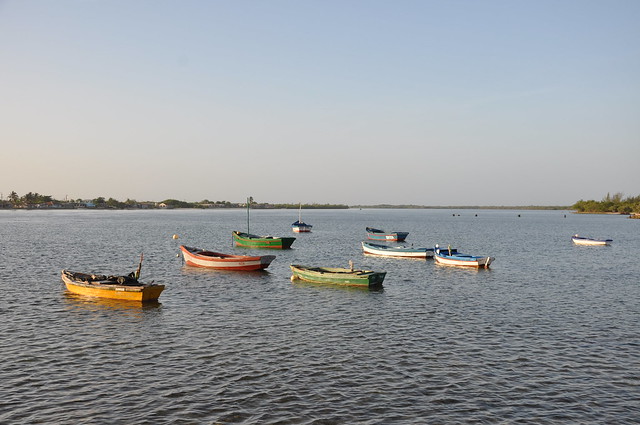
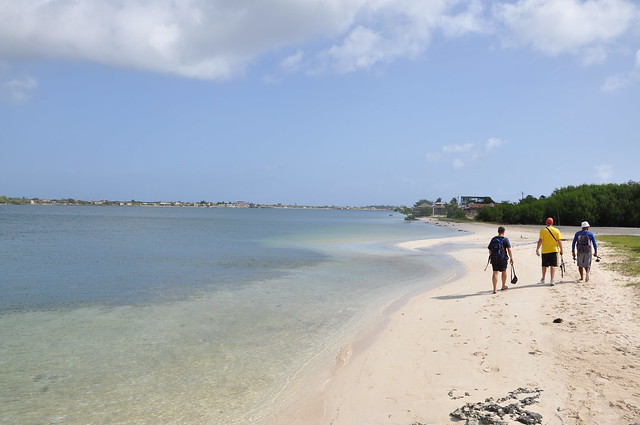
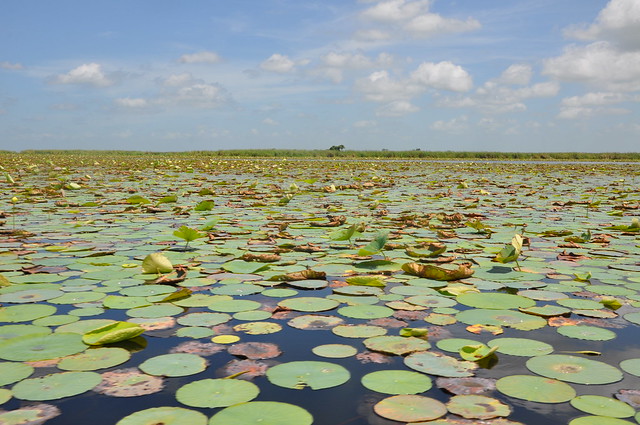
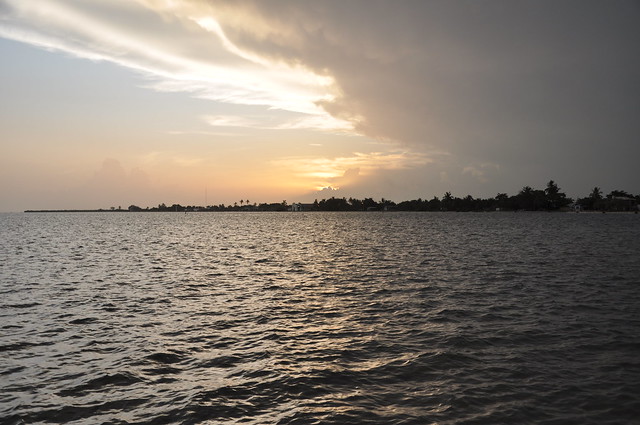
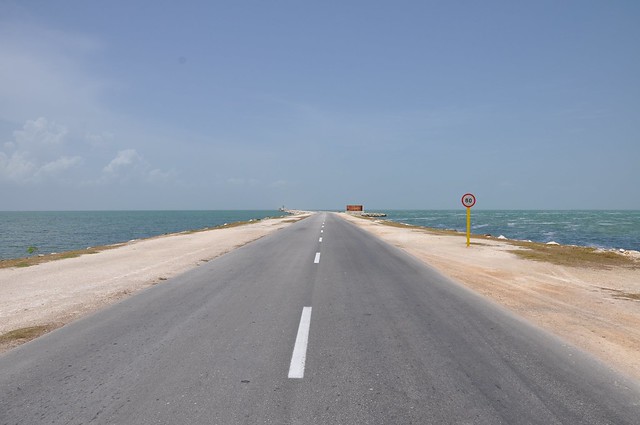
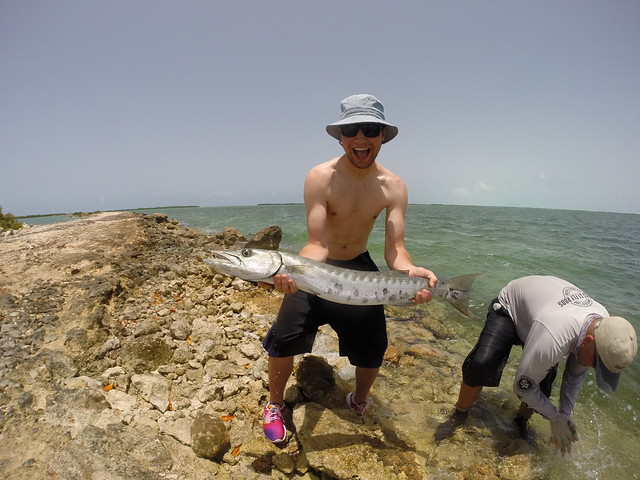
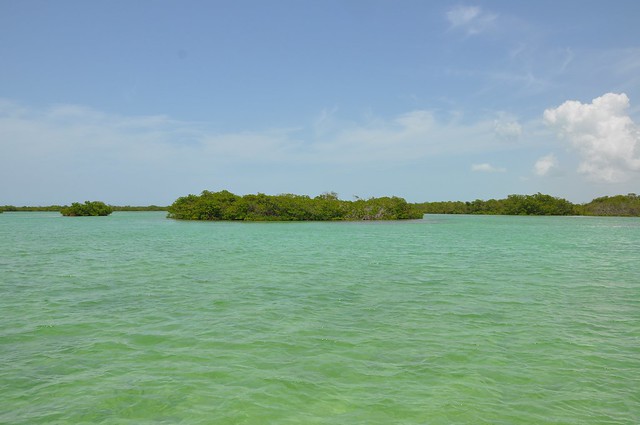
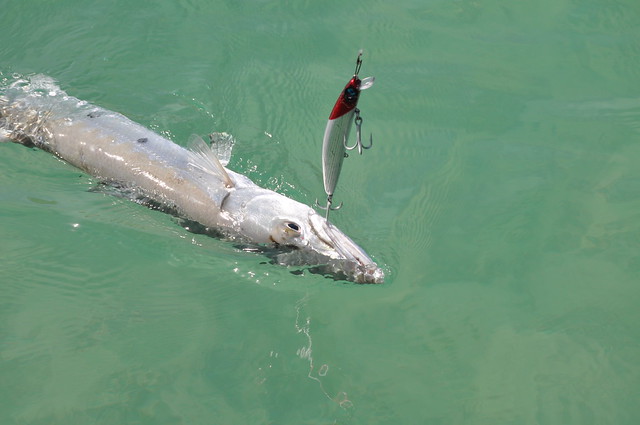
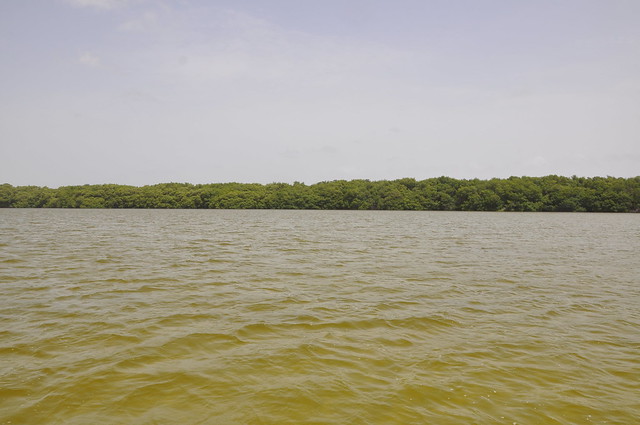
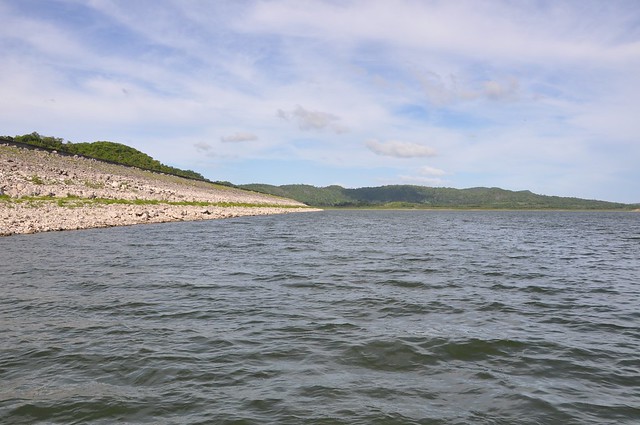
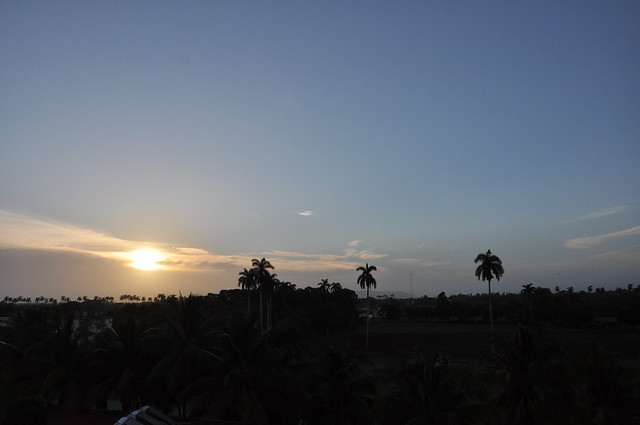
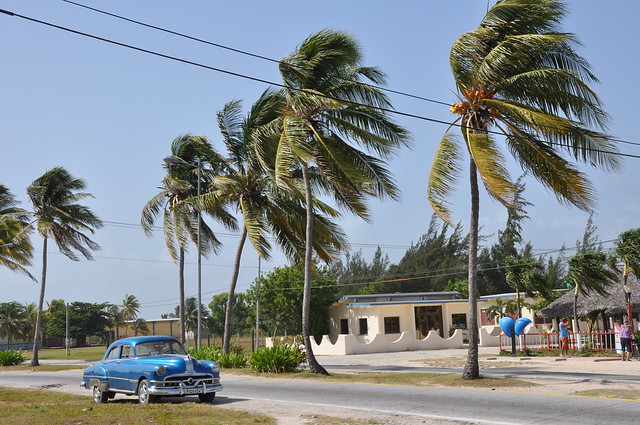
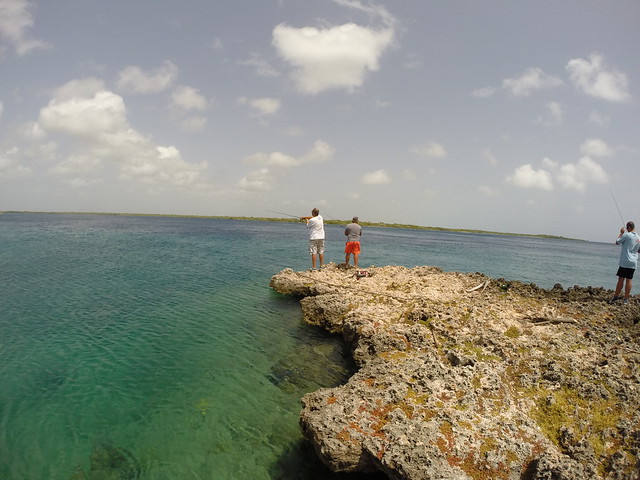
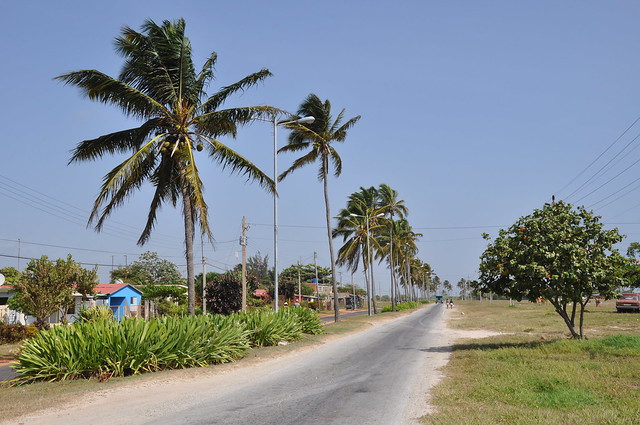
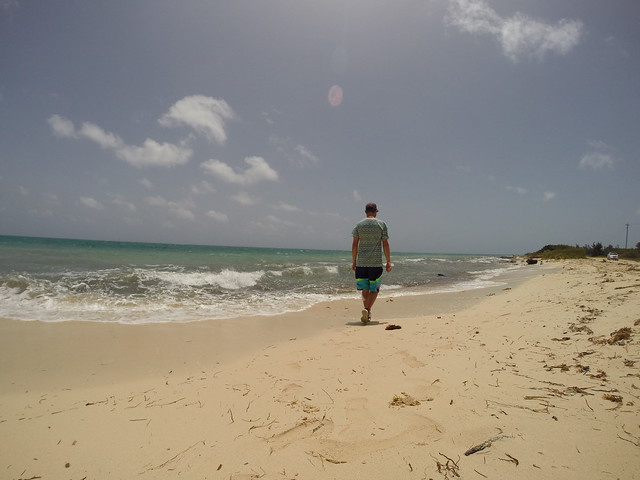
Write a comment
Terry (Thursday, 27 October 2022 01:24)
thanks ! You just saved me some money.
Nick Moody (Thursday, 19 January 2023 23:51)
Thanks for your honest and detailed report! The Lonely Planet Cuba guide talks up their bass fishing, so you report very useful!
Think I will stick to the bonefish.
www.flyfishingtheworld.blogspot.com
Paul (Wednesday, 24 July 2024 21:53)
Thanks for your article. Saved me from making the trip. Will go to Mexico now instead